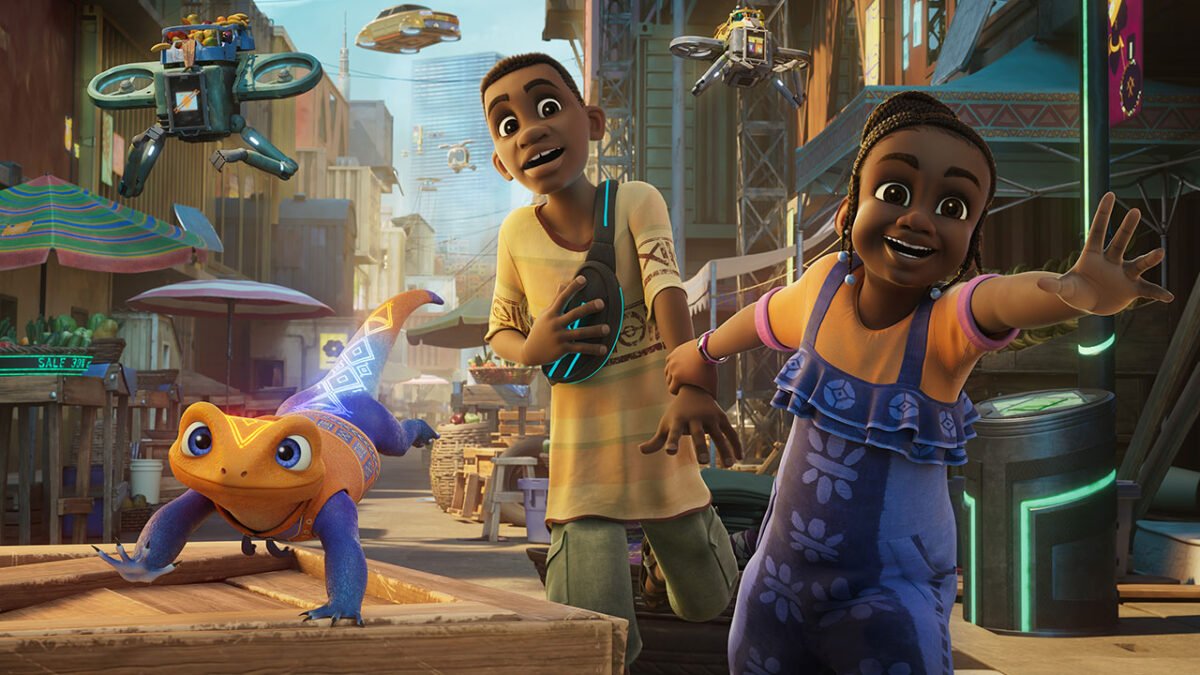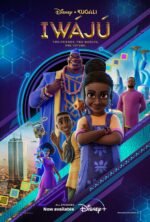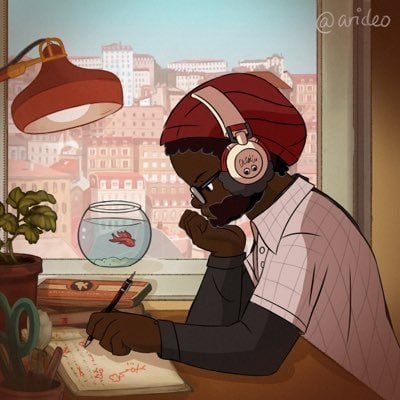Iwájú, a groundbreaking animated series from Kugali Media and Disney Animation, is a vibrant journey into a futuristic Africa that blends rich culture with sci-fi intrigue. In an interview with the BBC, one of the co-founders of up-and-coming African entertainment company Kugali Media jokingly made the bold claim that they would “kick Disney’s ass in Africa.” The company was founded on the idea of showcasing African stories told from real African voices and talent.
Funny enough, that video made its way to Disney Animation Studios’ chief creative officer Jennifer Lee, who surprisingly offered to collaborate with the company and marking the first time ever Disney Animation has openly teamed up with an outside studio. The result of that collaboration is Iwájú (a shortened form of a Yoruba term meaning “the future”), a vibrant and entertaining animated series steeped in culture but still engaging enough to appeal to a wider audience.
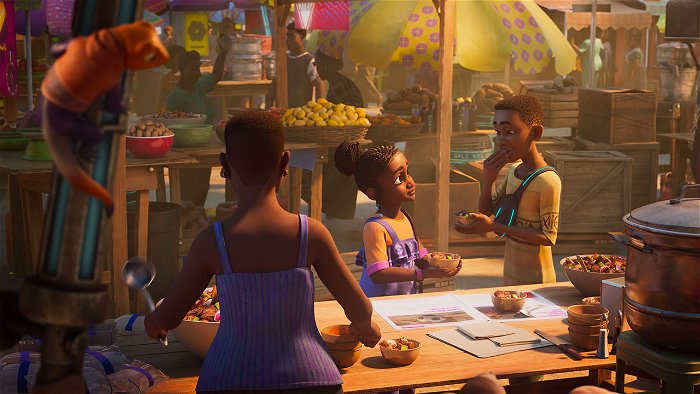
Taking place in a futuristic version of Lagos, Nigeria, the show focuses on 10-year-old Tola Martins (Simisola Gbadamosi). Tired of being sheltered at home, Tola wants to explore the mainland region of Ajegunle, much to the chagrin of her workaholic tech executive father Tunde (Dayo Okeniyi). However, her first trip to the mainland puts Tola in the crosshairs of Bode (Femi Branch), a massive crime boss running a child kidnapping and extortion ring who has chosen her as his next target. Thankfully, she’ll have the help to stop him with the help of her best friend Kole (Siji Soetan) as well as her robotic pet lizard Otin (Weruche Opia).
Authenticity is Iwájú’s main strength. Everything from the dialogue, fashion and music to the characters’ personalities and dynamics feels 100% authentic to Nigerian culture. Sure, there are flying cars, but there would also be drones piloted by vendors to sell food and trinkets to those same flying cars. The characters even speak in Pidgin and are all voiced by Nigerian actors. That dedication is courtesy of the Kugali co-founders, all tackling different production roles; director/co-writer Olufikayo “Ziki” Adeola, production designer Hamid Ibrahim and cultural consultant Tolu Olowofoyeku. Although the animation has that standard “Disney sheen” that’s similar to their last several CG flicks, it still feels like a distinctly Najia story.
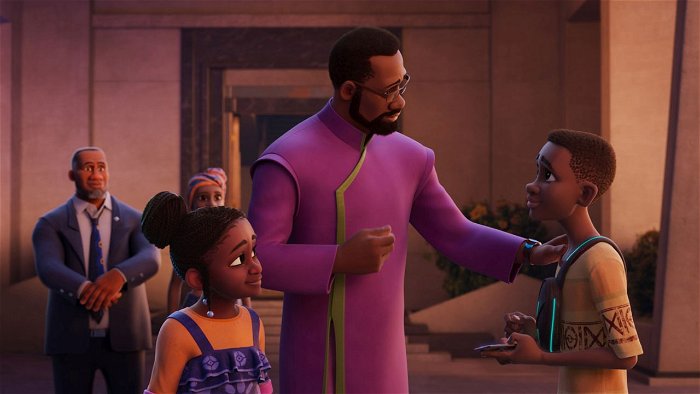
In addition, Iwaju manages to address some surprisingly heavy subject matter, placing heavy focus on the socio-economic disparity between the two regions as well as child kidnapping, two issues that continue to affect the country today. Iwájú approaches those subjects in a way that doesn’t feel too dark for kids but doesn’t shy away from the heaviness of them. While Tola lives her life in luxury on the island, the highly-intelligent Kole has to work as one of the Martins’ groundskeepers in order to take care of his sick mother on the mainland.
“Iwájú manages to address some surprisingly heavy subject matter, placing heavy focus on the socio-economic disparity between the two regions…”
That disparity is also what motivates Bode, his poor upbringing and subsequent mistreatment from the rich fueling his twisted sense of justice. All the main characters have well-defined personalities and the entire voice cast give great performances all across the board, especially young newcomer Simisola Gbadamosi.
My only major issue relies on the show’s pacing. Each of the six episodes is titled after a character, with that character’s backstory being fleshed out in the opening scene. However, certain characters get more time than others, to the others’ detriment.
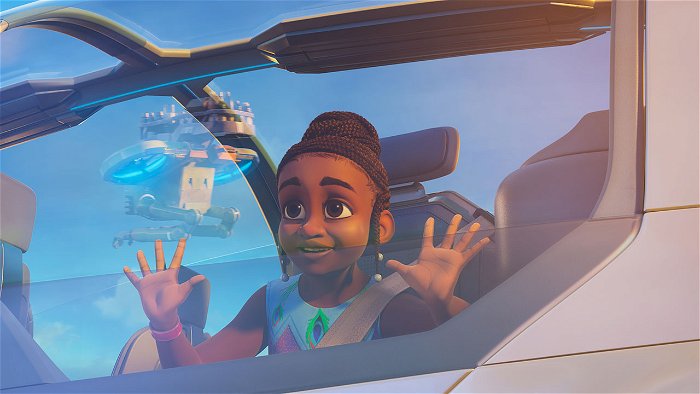
Whereas we get some time to see Tunde turn from an optimistic inventor in his youth to being completely consumed by his job, In Bode’s case we get a singular scene to showcase that initial turn to evil, but very little in-between then and the present. In addition, the episodes being only around 20 minutes each mean that by the time the episode really picks up momentum, it’s already over. It’s a show that could have really benefited from having a few more episodes.
“As the son of a West African immigrant, it’s impossible not to feel a sense of pride watching Iwájú…”
As the son of a West African immigrant, it’s impossible not to feel a sense of pride watching Iwájú. I never thought I’d hear characters proclaim love for plantain chips and Agege bread in a mainstream animated show. That being said, the series works on its own merits as a vibrant, entertaining sci-fi tale for anyone of all ages to enjoy. While Black Panther recently opened the doors for Afro-futuristic stories to be successful to a wider audience, I hope Iwájú is a first step in letting African talent and voices reach that forefront of mainstream entertainment as well.
